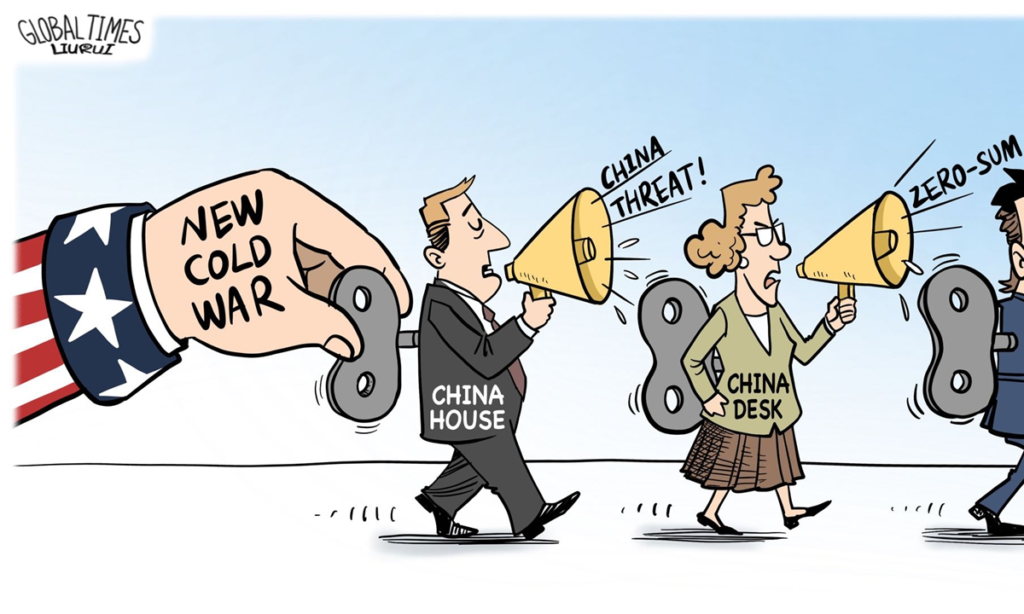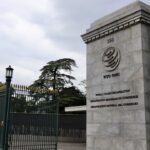In the face of China’s rise, the US is incapable of promoting itself, but can only rely on maximum suppression of its opponents to maintain a narrow lead. The launch of a unit focused on China by the US State Department is the latest example. The unit will be in a scale of 60 to 70 personnel and will be overseen by Rick Waters, an official from State Department’s Bureau of East Asia and Pacific Affairs, according to media reports.
US Secretary of State Antony Blinken on Friday presided over the launch of the new Office of China Coordination, informally known as China House. Reuters portrayed it as “an internal reorganization” to help expand and sharpen the US policymaking toward its top geopolitical rival.
This is evidently a step forward of the US government in an attempt to have more intense competition with China rather than cooperation, embodying that the Biden administration has pushed its China policy to a more dangerous zone.
A unit like the “China House” is not new. In October 2021, the CIA created a China Mission Center. And US President Joe Biden in February 2021 announced the formation of a Department of Defense China Task Force. Despite having different names, in essence, their functions are almost the same – to promote internal coordination and hype the so-called China threat theory, in a bid to contain China.
The creation of a unit focused on China by multiple departments in the US demonstrates that the US positioning of its relations with China is confrontation, instead of win-win cooperation that China has underlined. The US will go further on the road in antagonizing China.
Today, when the US holds summits with ASEAN, the EU, or African leaders, it will directly or indirectly involve the theme of confronting China. With the creation of units focusing on China, experts anticipate that US promotion of competition with China on bilateral, regional and global basis will become even more worrying. Notably, it may continue to demonize China in public opinion, distort China’s contribution to the international community, and further rope in its allies to contain China.
According to Shen Yi, a professor at Fudan University, the reason why Washington has failed to produce an effective China policy fundamentally lies in its wrong security concept, perception of US national interests as well as its overall wrong grasp of China-US bilateral ties. Under such notions, no matter how many units focusing on China are launched, the US will not be able to effectively deal with China. “Coping with the so-called challenge from China seems to have become an excuse for US bureaucrats to swindle extra budgets and personnel,” said Shen.
Given that several departments of the US government have created units focusing on China, some experts suspect there may be an anti-China ideological contest among them, which will further deteriorate the perception of the US’ China policy and China-US relations. In order to obtain more government resources and dominance in decision-making, these departments will go more extreme in their China policy instead of being more moderate. This means that the future course of US policy toward China will be themed more at conflicts.
The launch of units focusing on China will be a big blow to China-US relations. In this context, current anti-China hysteria may become the mainstream of these departments of the US government. This will prevent all walks of life in the US from having an accurate understanding of China, and will not be conducive to the stability of China-US ties.
Blinken announced the creation of China House in May. And he called China the “most serious long-term threat” to the world order. How has China threatened the world order? What has triggered the US to use such rhetoric is its belief that China has challenged its global hegemony. In light of this, Washington intends to do everything possible to hinder China’s development and curb China’s influence. The international community should not have illusions that the US will sincerely seek cooperation with China.
(Global Times)




